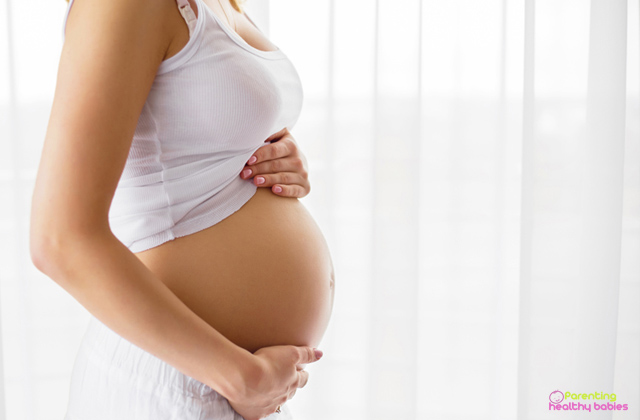Breathlessness during pregnancy is a common concern, especially early on in pregnancy. You need more oxygen when you are pregnant and this is because the growing child in your womb also needs to breathe. Your body adapts to meet this need in several ways. Rising hormones, particularly progesterone, directly affect your lungs and stimulate the respiratory centre in your brain. Later in pregnancy, your breathing might feel more laboured as your growing uterus puts pressure on your diaphragm – especially if you are carrying your baby high, are pregnant with multiples or have excessive amniotic fluid.
Shortness of breath during pregnancy can also be aggravated by a pre-existing condition like asthma, anaemia and high blood pressure.You may get some breathing relief a few weeks before you’re due, especially if it’s your first pregnancy.
A Guide for Breathlessness During Pregnancy
Causes
You could be suffering from shortness of breath even in cases when you have anaemia or some more serious heart problems or pulmonary disease. If this shortness of breath is severe or you are experiencing this along with chest pain, coughing up blood, dizziness then you must by all means visit your doctor.
Generally the main causes are:
Rising progesterone levels
The progesterone hormone levels shoot up in a pregnant body and in turn increases the woman’s lung capacity. This increase in the lung capacity of the woman is what delivers the oxygen to the mother as well as the foetus. Considering that more amount of oxygen is being delivered to the blood, you may experience an increase in the number of breaths you take thereby, leading to a feeling of shortness of breath.
Uterus expansion
As the uterus begins to expand in size in the third trimester, the organs begin to change their positions. The expansion makes the uterus put an increased amount of pressure on the diaphragm. Because there is congestion of the organs to give way to the uterus, the diaphragm can no longer extend and retract completely thereby, ensuing shallow breathing. This shallow breathing can cause breathlessness or shortness of breath.
Treatment
- Breathing exercises can raise your rib cage and promote more chest breathing. Practice slow, deep, relaxed breathing rather than shallow panting.
- Aerobic exercise can improve the efficiency of both the respiratory and the circulatory systems.
- If shortness of breath is accompanied by chest pain, seek medical attention immediately. It might be because of a blood clot has dislodged and settled in your lungs.
- Give yourself and your lungs as much breathing room as possible- stand up straight, sit up tall, and sleep propped up on pillows to expand the space in your abdominal cavity. When you feel breathless, slow down- rushing makes your heart and lungs work harder. And finally, doesn’t worry too much about your shortness of breath- both you and your baby are getting enough oxygen to stay healthy.
Complementary therapies help with breathlessness?
There’s no good evidence that complementary therapies can help with breathlessness during pregnancy. However, if you want to try a complementary therapy treatment, choose a registered, qualified practitioner who is experienced in treating pregnant women.
Acupuncture
Acupuncture aims to help your body function more efficiently. Your practitioner inserts fine needles into certain points in your body, to release “energy pathways”.
Osteopathy
If breathlessness becomes a constant problem, you could try osteopathy or chiropractic. These are manual therapies that aim to realign your body and reduce muscle tension and pressure on your joints.
You may feel that relaxing your body and improving your posture will help you to breathe more easily, as gentle exercise would.
Rescue remedy
If you become so breathless that you start to feel anxious or panicky, you could try the natural anti-stress treatment Rescue Remedy. Although there’s no evidence that Rescue Remedy is effective, many women find it helpful for easing panic attacks.
Serious problem
Sometimes – especially if you have another respiratory problem, such as asthma or the flu. Let your provider know if you feel short of breath because of a respiratory illness, like the flu. Pregnant women with respiratory illnesses often have more serious symptoms and are more likely to develop complications, such as pneumonia. Also, because of changes in the way your blood clots during pregnancy, you’re at higher risk for developing a blood clot that goes to your lungs (pulmonary embolism). This condition is rare but very serious.
Towards the end of your pregnancy, aim to spend 10 minutes every day taking deep breaths and exhaling, to help your lungs to inflate as fully as possible. Continue this after your baby is born to encourage your lungs to inflate fully again after being compressed in late pregnancy.













